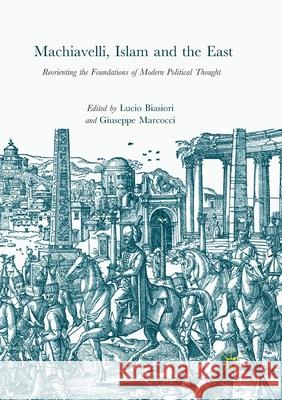Machiavelli, Islam and the East: Reorienting the Foundations of Modern Political Thought » książka
topmenu
Machiavelli, Islam and the East: Reorienting the Foundations of Modern Political Thought
ISBN-13: 9783319852829 / Angielski / Miękka / 2018 / 264 str.
Machiavelli, Islam and the East: Reorienting the Foundations of Modern Political Thought
ISBN-13: 9783319852829 / Angielski / Miękka / 2018 / 264 str.
cena 564,88
(netto: 537,98 VAT: 5%)
Najniższa cena z 30 dni: 539,74
(netto: 537,98 VAT: 5%)
Najniższa cena z 30 dni: 539,74
Termin realizacji zamówienia:
ok. 22 dni roboczych
Bez gwarancji dostawy przed świętami
ok. 22 dni roboczych
Bez gwarancji dostawy przed świętami
Darmowa dostawa!
Kategorie BISAC:
Wydawca:
Palgrave MacMillan
Język:
Angielski
ISBN-13:
9783319852829
Rok wydania:
2018
Wydanie:
Softcover Repri
Ilość stron:
264
Waga:
0.33 kg
Wymiary:
21.01 x 14.81 x 1.47
Oprawa:
Miękka
Wolumenów:
01
Dodatkowe informacje:
Wydanie ilustrowane











